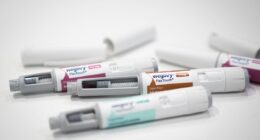Wellness
oi-PTI
on February 14, 2022
While Omicron continues to infect people across Australia and the world, many people who’ve already had COVID will likely be re-exposed to the virus. Depending on your local rules, if you’re exposed again within 30 days of your last infection, you’re unlikely to need to isolate or get another COVID test. In some countries, you may not need to re-test for 90 days, unless you develop new symptoms.
So,why is this the case? What’s the incubation period for Omicron?
The time between exposure to the virus and symptoms for COVID is between one and 14 days. This lag time is known as the “incubation period”.However, most people display symptoms by day five or six after exposure.
Emerging evidence suggests the median incubation period for Omicron is even shorter. In US and European studies, the median incubation time for Omicron was three days.
More reinfections with Omicron
Research suggests Omicron is more capable than past variants of reinfecting people who have already had COVID. A study from the Imperial College London’s COVID-19 response team estimated the risk of reinfection with Omicron to be 5.4 times higher than with Delta. So people who’ve had prior COVID infection, from any variant before Omicron, were five times more likely to be re-infected during the Omicron wave than the Delta wave.
READ RELATED: Kids aged 5 to 11 could get Covid vaccines in weeks in desperate bid to stop school chaos
Omicron appears significantly more likely to evade the natural immunity people build-up from past infections.
How long should I wait before re-testing?
Global studies indicate you don’t need to re-test for 30-90 days after a COVID positive test if you’re re-exposed, depending on the jurisdiction.
By Jaya A R Dantas, Curtin University Perth
GET THE BEST BOLDSKY STORIES!
Allow Notifications
You have already subscribed
Source:










